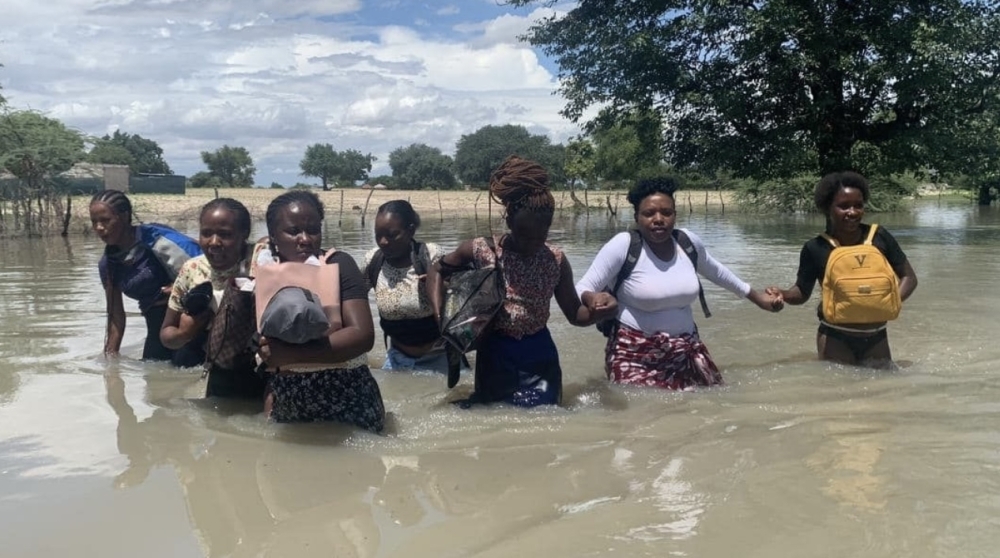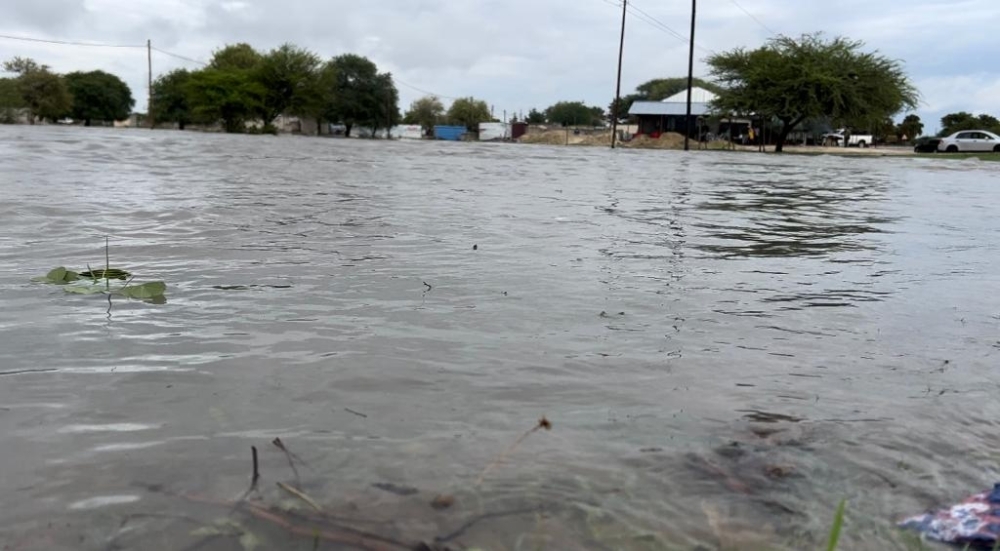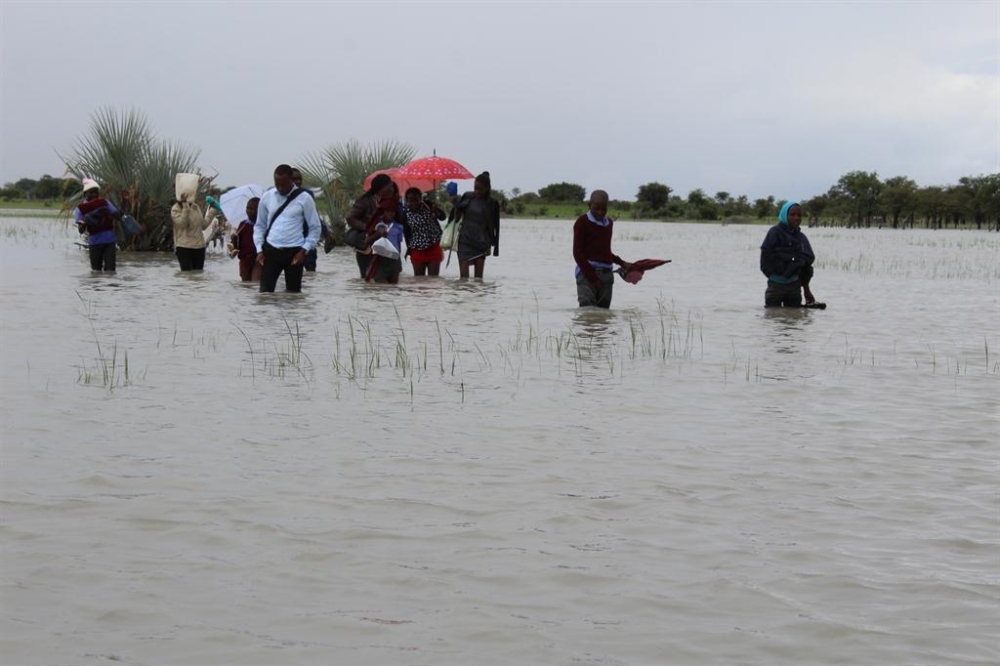‘Salary-collectors’ cross floodwater to educate
Teachers risk life and limb to get to school
Labelled mere 'salary-collectors' when the poor exam results were released recently, a group of teachers said not even insults will crush their drive to impart knowledge.
Teachers in flood-affected regions are crossing swathes of floodwater and risking their lives for the Namibian child, saying not even being called ‘salary-collectors’ will dash their drive to impart knowledge.
Around 14 Epoli Combined School teachers in the Ohangwena Region have been risking life and limb to cross floodwater since last Monday.
Most of the school’s learners live in an area which has not been affected by the flood, making it safe for them to get to school.
Speaking on condition of anonymity, one of the teachers said they are risking their lives to educate the Namibian child, but end up being called ‘salary-collectors’.
This after the Swapo Party Youth League blamed "salary-collectors" in the education ministry for learners’ poor performance in the recently-announced national examination results.
Another teacher added that they are making sacrifices to ensure that education continues for the learners.
“The water level is increasing every day and it is becoming dangerous, but no solution has been provided yet. We are suffering,” one of the teachers said.
Camping at school
The group said they already raised the situation with the school’s principal, but were told to camp at school and were forced to sleep in classrooms.
“We don’t have a problem with camping, but there are no showers at the school and some of us have children at home. There’s no one to take care of them if we have to camp,” she said.
As a temporary solution, the teachers have requested a canoe to help them cross the floodwater, adding that a permanent solution could be to construct a bridge or teachers’ accommodation at the school.
Ohangwena region director of education, arts and culture Isak Hamatwi said it’s a “delicate situation” as there are no learners involved.
“It’s our teachers, but wherever we recruit them and there’s no teachers' accommodation, they make alternative arrangements on their own, which can be the case here.”
He added that while they could provide the teachers with tents, they do not have tents at the moment and the teachers can buy themselves tents as an alternative.
Since the flooding started, Ohangwena has closed 20 schools, affecting over 8 000 learners, with this number expected to increase as the flood persists.
Around 14 Epoli Combined School teachers in the Ohangwena Region have been risking life and limb to cross floodwater since last Monday.
Most of the school’s learners live in an area which has not been affected by the flood, making it safe for them to get to school.
Speaking on condition of anonymity, one of the teachers said they are risking their lives to educate the Namibian child, but end up being called ‘salary-collectors’.
This after the Swapo Party Youth League blamed "salary-collectors" in the education ministry for learners’ poor performance in the recently-announced national examination results.
Another teacher added that they are making sacrifices to ensure that education continues for the learners.
“The water level is increasing every day and it is becoming dangerous, but no solution has been provided yet. We are suffering,” one of the teachers said.
Camping at school
The group said they already raised the situation with the school’s principal, but were told to camp at school and were forced to sleep in classrooms.
“We don’t have a problem with camping, but there are no showers at the school and some of us have children at home. There’s no one to take care of them if we have to camp,” she said.
As a temporary solution, the teachers have requested a canoe to help them cross the floodwater, adding that a permanent solution could be to construct a bridge or teachers’ accommodation at the school.
Ohangwena region director of education, arts and culture Isak Hamatwi said it’s a “delicate situation” as there are no learners involved.
“It’s our teachers, but wherever we recruit them and there’s no teachers' accommodation, they make alternative arrangements on their own, which can be the case here.”
He added that while they could provide the teachers with tents, they do not have tents at the moment and the teachers can buy themselves tents as an alternative.
Since the flooding started, Ohangwena has closed 20 schools, affecting over 8 000 learners, with this number expected to increase as the flood persists.







Comments
Namibian Sun
No comments have been left on this article